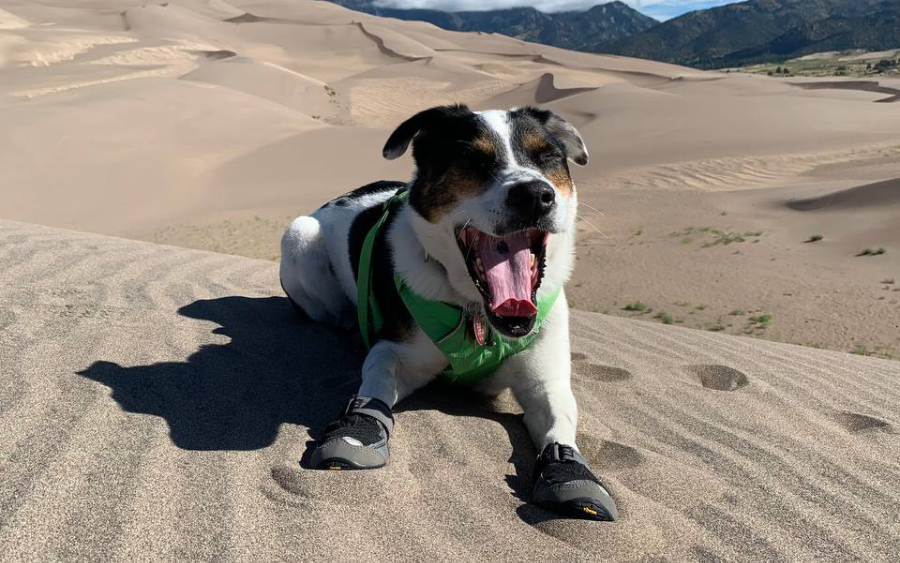
#1: Plan with weather and terrain in mind
Research trail conditions, difficulty level, elevation, and expected weather before you plan your trip. Be prepared for regional weather-related risks like high midday heat or sudden temperature swings in high-altitude areas.
Rugged and changing terrain can cause paw injury or irritation. Check your dog’s paws frequently while hiking and consider having them wear protective boots.
Take advantage of social media groups for different national parks and hiking trails, or groups for people who take their pets camping. You can find a lot of valuable resources online.
#2: Build up your pet’s stamina
If your pet is new to hiking or camping, or is young or old, start with short, easy outings. Let your dog build their stamina and strength over time and ensure they stay hydrated and get rest between hikes. Dogs often run on adrenaline and may push past the point of fatigue on longer expeditions, putting them at risk for injury, overexertion, or heat stroke.
#3: Be aware of water-related dangers
Excessive water play can lead to water intoxication, a dangerous electrolyte imbalance that can cause rapid illness. Limit your dog’s swimming time.
In warmer months, toxic blue-green algae blooms are common on lakes, ponds, and streams. Even fresh-flowing mountain water can carry various parasites. Avoid stagnant or murky water. Carry enough water for both you and your pet.
#4: First-aid and preventions
Mother Nature isn’t always kind, so be prepared for minor injuries with a pet first aid kit. Also pack your pet’s medical records, a spare leash, reflective tape, and any medications your pet takes.
Year-round flea, tick, and heartworm preventives from Firehouse help protect against parasites your pet may encounter in tall grass, wooded areas, or near water.
#5: Build a pet-safe camp
Use a lighted collar or reflective gear to ensure your pet is always visible. Don’t leave your pet unattended and keep them away from campfires and other dangerous areas. Securely store food and trash so you don’t attract wildlife or risk accidental ingestion.
Stay vigilant. Wild animals can pose real risks for curious pets. Keep your pet on a leash and never allow them to approach, interact with, or chase wildlife. Check that your pet’s ID tag and microchip have current contact info in case you get separated.
Planning your next adventure? Make sure your pet is fit for the trail at Firehouse Animal Health Centers. Book an appointment online or contact our team!
